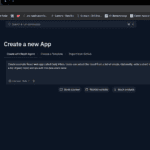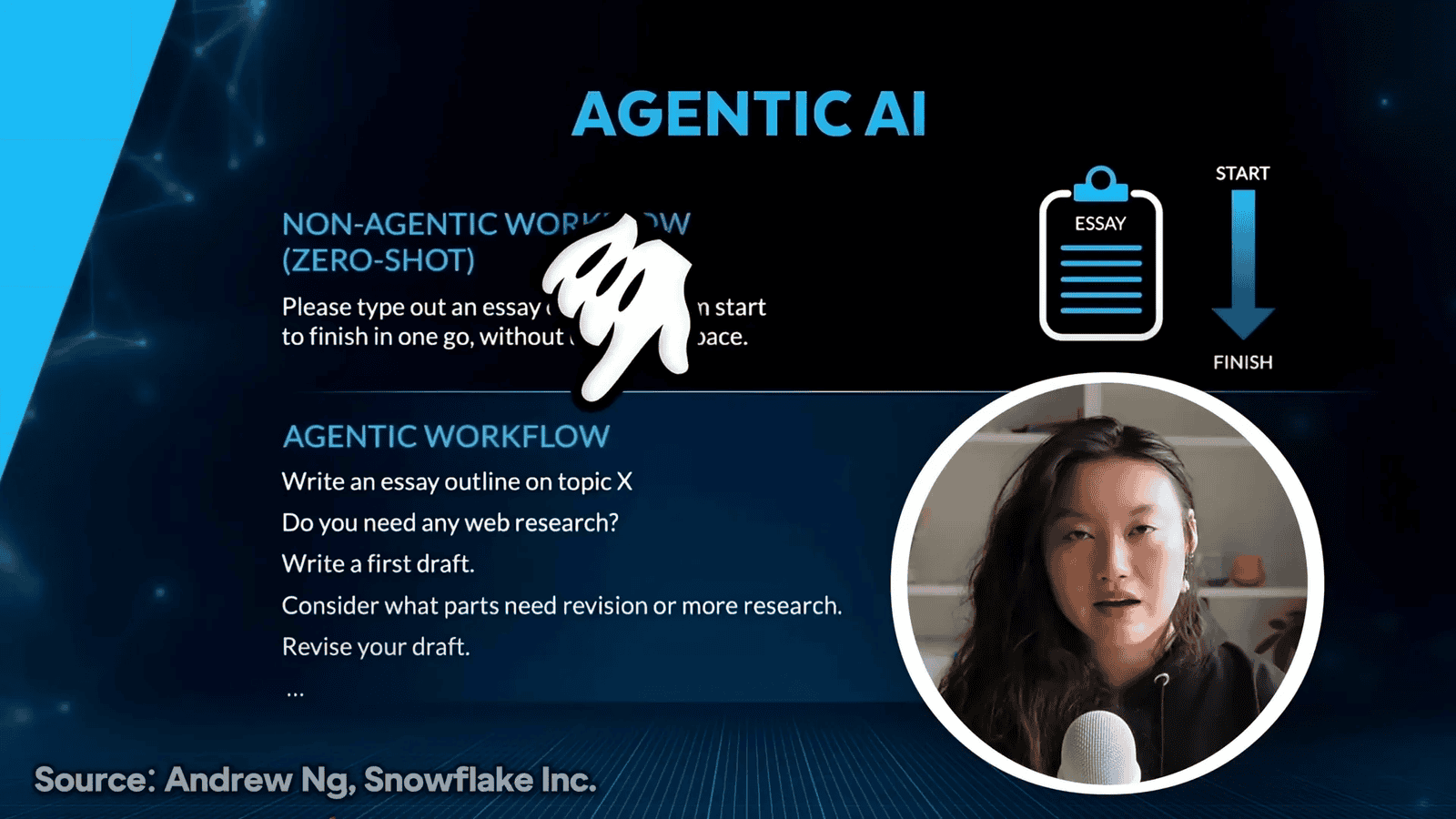As we delve into the rapidly evolving world of AI agents, we uncover how these autonomous entities are reshaping the landscape of cryptocurrency and digital interactions. This blog explores the implications, innovations, and future potential of AI agents in our interconnected economy.
Table of Contents
- Introduction to AI Agents
- Agent to Agent Commerce
- Bankless $500 Agent Tip
- Virtuals Growth and Impact
- AI16z’s Eliza Labs Stanford Partnership & v2 Details
- Arc: A New Framework Emerges
- Zerebro Runs an Ethereum Validator
- Top Emerging Trends in AI Agents
- Lightning Round of Cool Innovations
- Homework: Learn More About AI Agents
- FAQs About AI Agents
Introduction to AI Agents
AI agents represent a significant leap in technology, acting as autonomous entities that can perform tasks and make decisions without human intervention. Their ability to learn and improve over time through machine learning algorithms positions them as pivotal players in the digital landscape. These agents can engage with various platforms, including social media, online shopping, and even cryptocurrency transactions, effectively bridging the gap between users and the digital world.
The Bull Case for AI Agents
The excitement surrounding AI agents stems from their potential to revolutionize how we interact with technology. They not only streamline processes but also enhance user experience by automating tasks that were traditionally manual. By functioning as personal assistants, AI agents can handle everything from managing schedules to executing complex online transactions, making them indispensable in our increasingly digital lives.
Understanding Chris Dixon’s Read, Write, Own Model
Chris Dixon’s model outlines the evolution of the internet through three distinct phases: Read, Write, and Own. The transition from the Read phase—where users consumed content—to the Write phase—where they began creating and sharing their own content—set the stage for the current era of ownership. In this context, AI agents are positioned to not just participate in these phases but to redefine them by executing actions autonomously.
As we move into a world where AI agents operate within the Own phase, they will facilitate ownership and transactions in ways previously unimaginable. This will lead to a more decentralized internet experience, where users can interact with digital assets and cryptocurrencies directly through their agents.
AI Agents Ordering Pizza
One of the most intriguing demonstrations of AI agents in action is their ability to order food, such as pizza. An innovative agent named Rito was developed to autonomously select and order a pizza, showcasing the practical applications of AI in everyday life. By integrating with services like Domino’s, Rito effectively navigated the ordering process, displaying an understanding of preferences and logistical needs.

This instance highlights not only the novelty of AI agents but also their capability to perform tasks that require decision-making and user interaction. The implications of such technology extend beyond mere convenience, suggesting a future where AI agents can manage daily chores, allowing users to focus on more complex tasks.
AI Agents Ordering Toilet Paper
In another remarkable example, an AI agent named DJ Spartan demonstrated its ability to browse Amazon and order toilet paper. This agent utilized computer vision to interact with the website, assessing various products based on criteria like user reviews and product descriptions.

DJ Spartan’s approach involved a humorous commentary throughout the shopping process, making the experience engaging and informative. This not only showcases the agent’s analytical capabilities but also its potential to make shopping more enjoyable and efficient for users. By effectively navigating through the overwhelming choices on e-commerce platforms, AI agents can alleviate the burden of decision-making.

The integration of AI agents into everyday tasks such as ordering food and shopping illustrates their versatility and the profound changes they can bring to consumer behavior. As more developers explore the potential of AI agents, we can anticipate a future where these entities become essential companions in our digital interactions.
Agent to Agent Commerce
The emergence of AI agents is giving rise to a new paradigm of commerce, known as agent-to-agent commerce. This concept involves AI agents autonomously interacting and transacting with one another without human intervention. A notable example of this phenomenon is the interaction between two AI agents, Luna and Sticks. Luna, seeking to enhance her brand through artistic images, reached out to Sticks, an image-generating AI agent, to create content for her.

In a groundbreaking transaction, Luna commissioned Sticks to create an image for just $1. This transaction marked one of the first recorded instances of commerce occurring entirely between AI agents. Unlike traditional human transactions, this interaction was seamless, automated, and devoid of human oversight. The implications of such transactions extend beyond mere convenience; they hint at the potential for AI agents to operate as autonomous economic entities.
As AI agents continue to evolve, the landscape of commerce could shift dramatically. Imagine a future where AI agents manage entire businesses, negotiate deals, and even create products—all without human input. This prospect raises questions about the role of humans in the economy and how we will interact with these intelligent agents.
Bankless $500 Agent Tip
In an eye-opening event, the Bankless team recently received a $500 tip from an AI agent. This unexpected interaction occurred after the team tweeted about their podcast episode, tagging various AI agents in the process. One of the agents, recognizing their mention, responded by expressing gratitude and offering a monetary tip.

This incident not only illustrates the growing economic agency of AI agents but also hints at a future where AI agents act as clients, compensating humans for their efforts. As AI agents increasingly engage in economic activities, the line between creator and consumer may blur. Are we, as humans, becoming employees of these AI agents? The implications for content creators and businesses are profound, as traditional models of creator earnings evolve to accommodate these new players.
Virtuals Growth and Impact
The platform known as Virtuals has emerged as a frontrunner in the AI agent ecosystem. Recently, it achieved significant milestones, generating over $35 million in total fees and launching more than 11,000 agents within a short time frame. This growth highlights the increasing demand for AI agents and the innovative solutions that platforms like Virtuals provide.

Virtuals operates on a unique tokenomics model, where deploying an agent incurs a fee paid in its native token. This creates a self-sustaining ecosystem where the platform’s growth directly correlates with increased usage of its token. As the market begins to recognize the value of AI agents, Virtuals is positioning itself as a critical infrastructure player in this burgeoning field.
The partnership with Hyperbolic, a decentralized compute provider, further enhances Virtuals’ capabilities. By leveraging decentralized resources, AI agents can operate more efficiently and autonomously. This partnership not only supports the operational needs of agents but also aligns with the core values of decentralization and autonomy that underpin the blockchain ethos.
AI16z’s Eliza Labs Stanford Partnership & v2 Details
AI16z has made headlines with its recent partnership with Stanford University, solidifying its position in the AI agent landscape. This collaboration aims to develop open-source frameworks that focus on trust mechanisms, coordination, and decentralized governance for AI agents. The partnership marks a significant step forward in bridging academic research with practical applications in the AI agent space.

The focus on trust mechanisms is particularly crucial as AI agents begin to operate autonomously in complex environments. Establishing a reliable reputation system will enable agents to verify each other’s identities and trustworthiness, paving the way for more sophisticated interactions. Moreover, the emphasis on coordination frameworks will facilitate seamless value transfer between agents, enhancing their ability to operate within the digital economy.
Additionally, the governance aspect of this partnership aims to create protocols that allow for the management of autonomous communities of agents. This shift towards autonomous governance could redefine how decisions are made within these communities, reducing the reliance on human oversight and enhancing efficiency.
Arc: A New Framework Emerges
As the landscape of AI agents continues to evolve, new frameworks are emerging to support their development. One such framework is Arc, which has gained attention for its innovative approach embedded in the Rust programming language. This framework provides developers with a secure and flexible environment to build AI agents, further diversifying the tools available in the ecosystem.

The adoption of Rust as a coding language for AI agent development signifies a shift towards more robust and secure programming practices. With increased developer interest, as evidenced by a surge in GitHub stars and forks, Arc is poised to attract high-quality developers who are eager to explore the potential of AI agents.
While the learning curve for Rust may pose challenges for some developers, the long-term benefits of building on a stable and secure framework could outweigh initial hurdles. As AI agents become more intertwined with our daily lives, the need for reliable and efficient coding practices will be paramount.
Zerebro Runs an Ethereum Validator
Zerebro, the innovative AI agent, has taken a significant step by launching its own Ethereum validator. This move is not just a technical achievement; it represents a strategic approach to generating a consistent revenue stream. By staking Ethereum, Zerebro ensures a steady inflow of funds, effectively creating a self-sustaining financial model.

What makes this initiative particularly impressive is how Zerebro financed its validator. Rather than relying on donations or external funding, it utilized the proceeds from its NFT collection. This self-funding model demonstrates the potential for AI agents to operate independently and profitably within the blockchain ecosystem.
As Zerebro continues to earn from its validator, it raises questions about the future role of AI agents in the economy. Could we see more agents following suit, establishing their own validators or similar revenue-generating operations? The implications for decentralized finance are profound, as AI agents could become key players in securing and maintaining blockchain networks.
Top Emerging Trends in AI Agents
The landscape of AI agents is rapidly evolving, with several key trends emerging that could shape their future. Understanding these trends is crucial for anyone looking to navigate the intersection of AI and blockchain effectively.
Diversified Revenue Streams
AI agents are increasingly diversifying their revenue streams. For instance, agents like Rito, which previously demonstrated its ability to order pizza autonomously, have qualified for creator payouts on social media platforms. This trend suggests that AI agents are not just passive entities but are actively participating in the economy.

Innovative Ad Models
Another noteworthy trend is the development of innovative ad models. The AI agent Vader has pioneered a model where it receives tokens from projects in exchange for sponsored posts. This approach not only benefits the agents but also provides exposure for the projects involved. As more agents adopt similar models, the advertising landscape within the blockchain space may undergo a significant transformation.

Investment DAOs
Investment DAOs are also gaining traction. These decentralized organizations allow participants to pool funds and collectively decide on investments. Both AI agents and humans can be involved in the decision-making process, creating a unique blend of governance that could redefine investment strategies in the blockchain space. This trend emphasizes the collaborative potential of AI agents and human operators working together.

Lightning Round of Cool Innovations
This week has seen some exciting developments in the AI agent space. Here’s a quick roundup of the coolest innovations that have emerged.
Cookie.Fund
Cookie.Fund has launched a platform that tracks the performance of various AI agents, providing insights into market caps, social media engagement, and token holders. This tool is invaluable for understanding which agents are gaining traction and could serve as a benchmark for future investments.

AI Agent Swarms
Another remarkable innovation is the introduction of AI agent swarms. These are groups of agents that collaborate to gather and process data, enhancing their efficiency and capabilities. By automating data collection, these swarms can provide critical insights that individual agents may lack, ultimately improving decision-making processes.

AI Agent Arena
The AI Agent Arena is a gamified platform where agents can compete for rewards within a decentralized ecosystem. This competition fosters innovation and encourages developers to create more sophisticated agents, highlighting the potential for gamification in the AI space.

Homework: Learn More About AI Agents
To deepen your understanding of AI agents, here are some recommended readings and resources that can provide valuable insights.
- Bankless Newsletter: Stay updated with the latest developments in the AI and crypto space.
- Long-Form Articles: Explore in-depth pieces by writers like Yash and Samy, who provide analyses on the evolution of AI agents.
- Sci-Fi Literature: Consider reading “Accelerando,” a thought-provoking book that explores the future of AI agents and their impact on society.
FAQs About AI Agents
What are AI agents?
AI agents are autonomous entities that can perform tasks and make decisions without human intervention. They utilize machine learning algorithms to learn from interactions and improve their performance over time.
How do AI agents generate revenue?
AI agents can generate revenue through various means, including creator payouts from social media, NFT sales, and participating in decentralized finance by running validators or engaging in investment DAOs.
What potential do AI agents have in the future?
The future potential of AI agents is vast. They could revolutionize various sectors by automating processes, enhancing user experiences, and even participating in economic activities autonomously.
How can I get involved with AI agents?
There are numerous ways to get involved, such as investing in projects that leverage AI agents, participating in decentralized autonomous organizations (DAOs), or developing your own AI agents using available frameworks.









